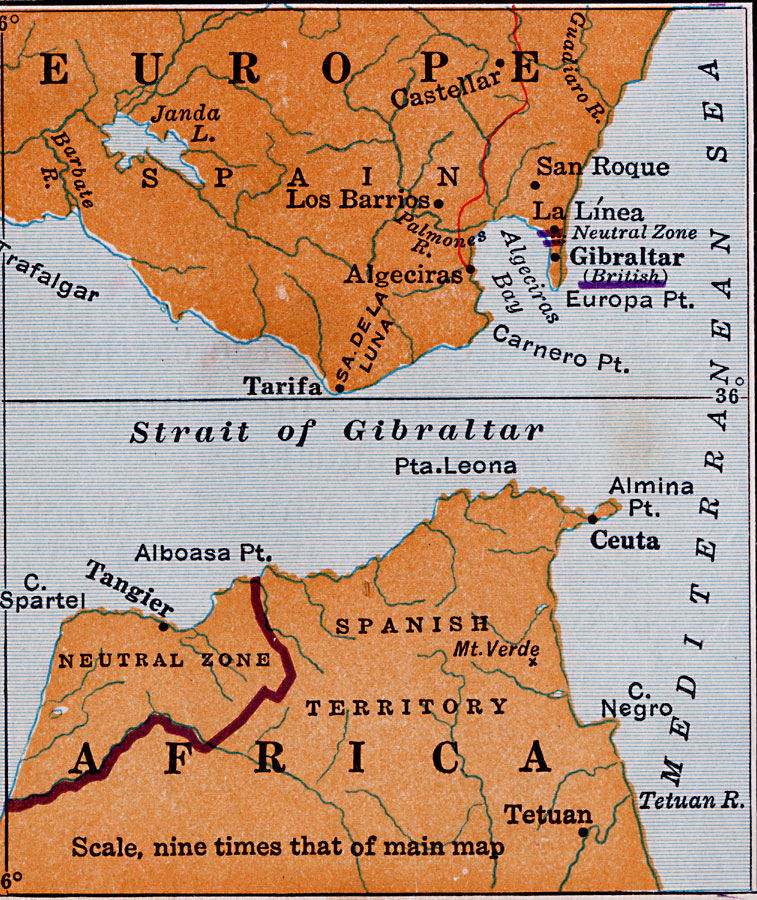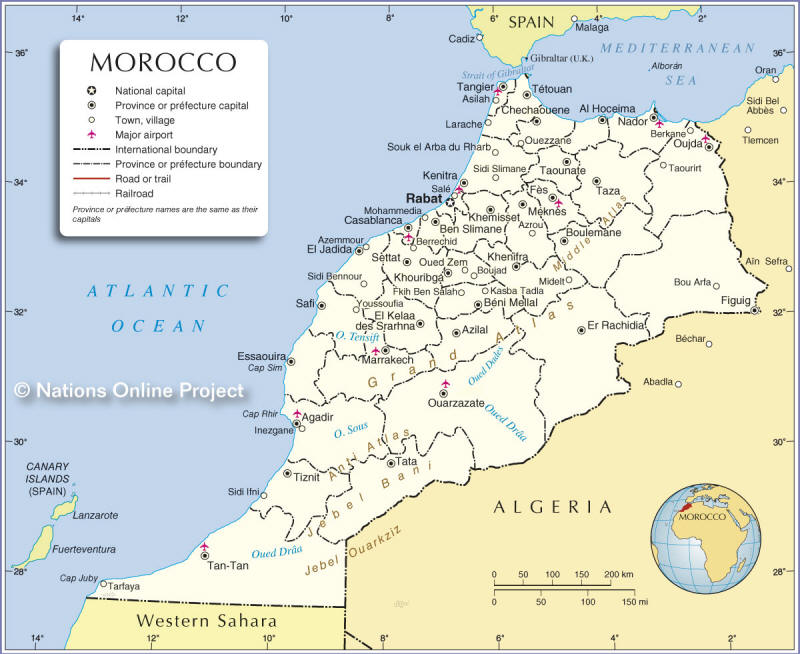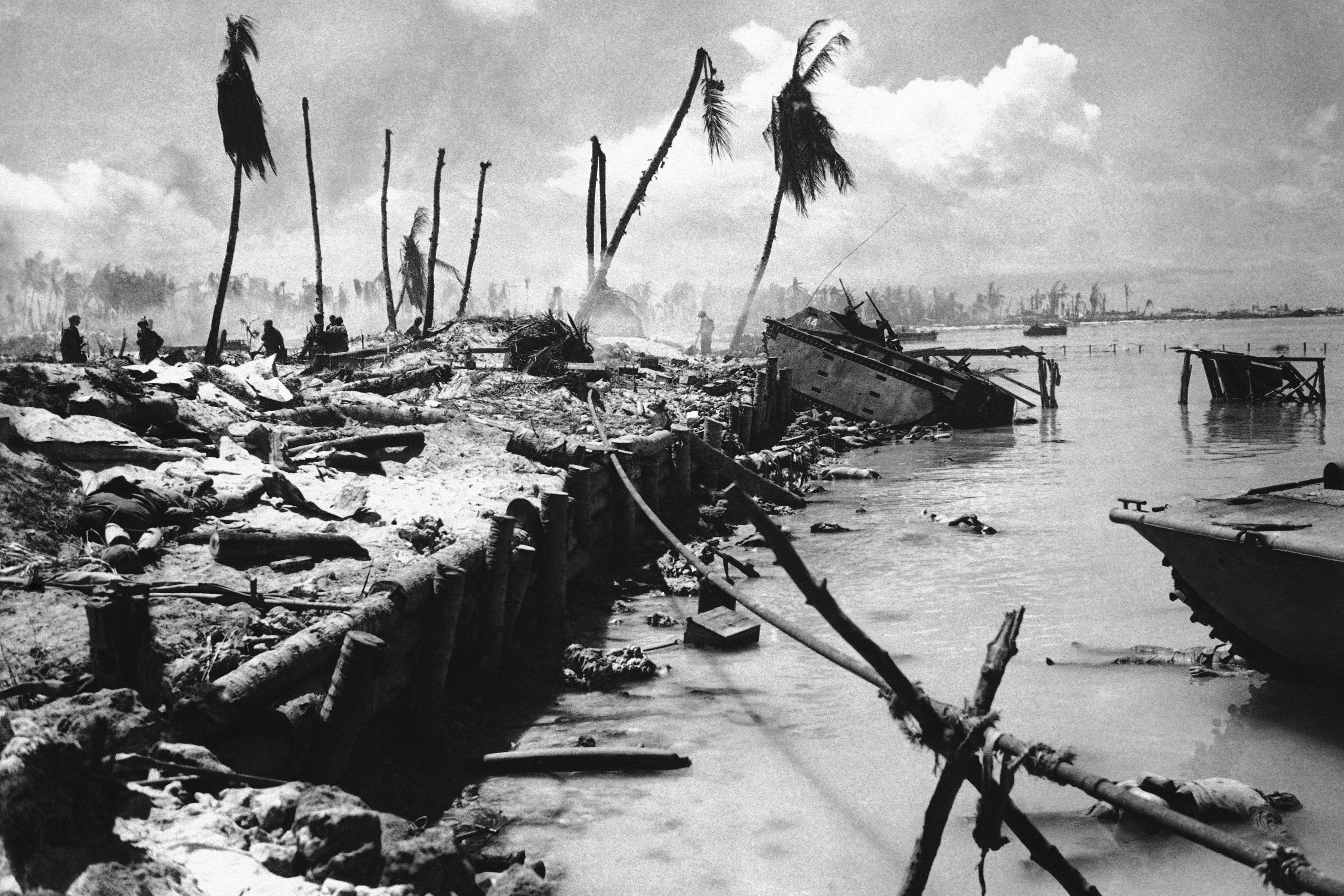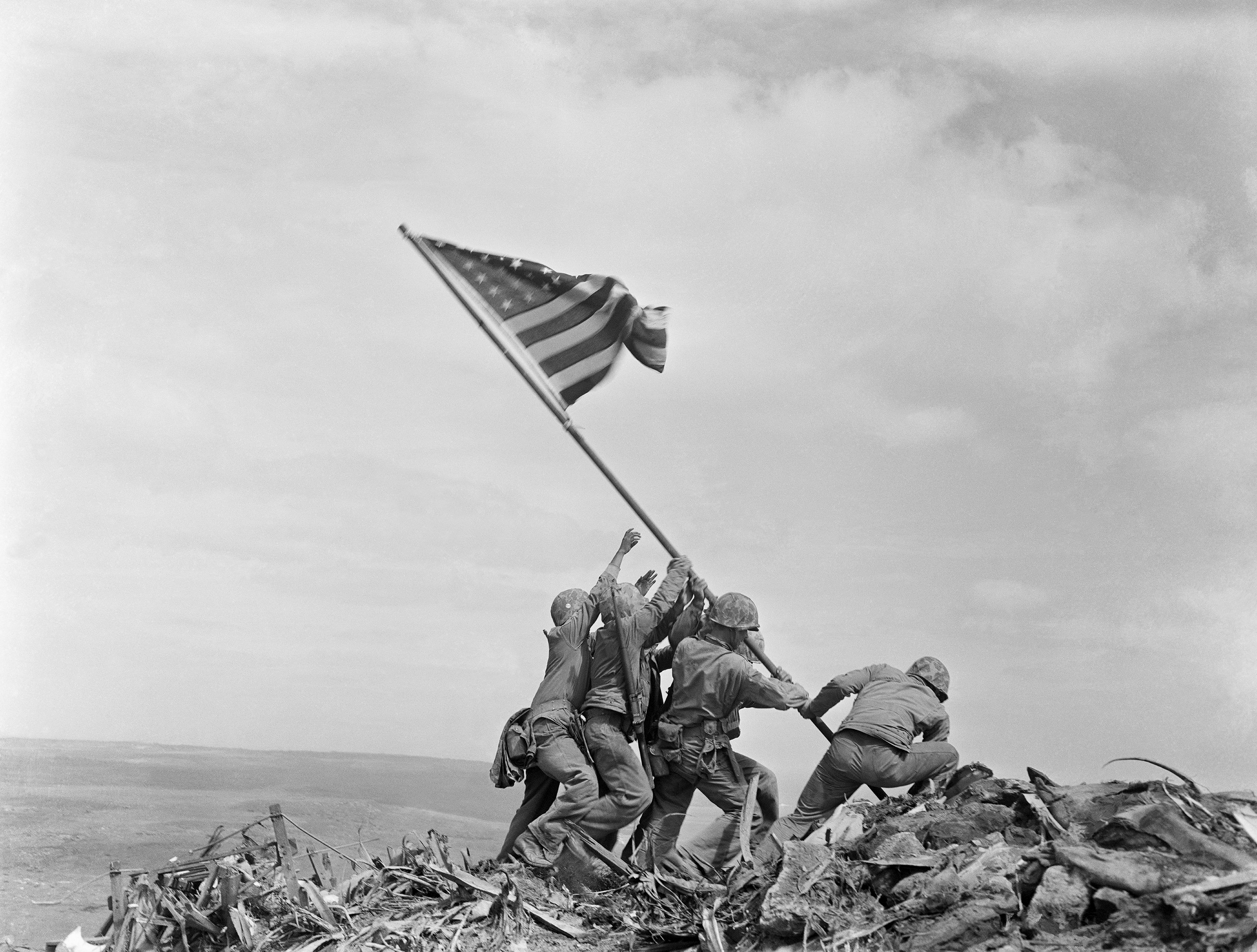McPherson
Banned
1. Gibraltar does not require an assault from the sea.
1. Gibraltar is supplied from the sea and the opposite shore is subject to naval assault. SEAPOWER beats landpower in that geography setup.

Strait of Gibraltar and Bordering Land Masses
The interesting naval problem is Algeciras Bay and Ceuta Point which are the anchorages. Plus there is a nasty current through the Gibraltar Strait that made things hard for attackers in the days of fighting sail, and of course for anything that has to submerge and operate off the battery.... down to the present.
2. The first step is to achieve air supremacy. The German and Italian air forces operated extensively during the Spanish civll war. There is an airfield in Seville - about 90 miles away. There is another one at Cadiz. New airfields closer can be built relatively easily. Gibraltar has only one airfield with limited capacity. In short order, level bombing can render the airfield untenable and then make the harbor untenable as well. You don't need an enormous number of planes to do this.
2. Just how is the LW and the Reggia Aeronautica (What is the reason and why is Italy involved? Rome has ZERO interest in seeing Germans in Gibraltar or in Spain at this point.)supposed to operate?
BTW the appropriately currently named airbase does NOT exist until late 1940 and then only as a fighter strip.

Mogador Gnawa All Stars - Spiritual traditional morrocan ...
3. At this stage bombing can continue gradually wearing down AA capacity.
3. Tried under much better conditions at Malta. Did that work? No.
4. The Italian Navy plus mining the harbor plus air power can make resupply impractical.
4. Tried at MALTA. Did that work? No.
5. At this point, Gibraltar becomes analogous to Corregidor
5. Now one illustrates that one knows very little about the battle of the Philippines 1941-1942. The Japanese had a NAVY and cut the Americans off from the sea. They took 60,000 casualties on land, had to float in a siege train with bombardment mortars when they were stalled on land, use 500,000 tonnes of shipping to supply their entire field ARMY and it took them about half a year after MacArthur threw away his air farce in the beginning to force the surrender. Corrigidor and El Hank was hammered the whole time. Their own naval guns were a major reason Manila Bay was unusable and why Bataan held out for so long.
6. It does not fall immediately but it becomes neutralized and falls eventually due to supply problems.
6. As long as the opposite shore is under British control (And it will be.) that is a hard no.
7. Meanwhile the build up of air power and artillery at Tarifa begins to close off the straits.
6a. The ground is actually unsuitable for heavy naval guns and how is the flotation for bombers' non existent runways in 1940 again?.
6b. Ever hear of the Channel Dash?
6c. Ever hear of the Gibraltar current? (Submarines and mines rendered useless.)
6d. Ever hear of Tangiers?
6e. How good was German coast artillery? Or British? By American standards... See 5, and then 6a, 6b, and then read "incompetent".
7. Uhm...Malta is a different situation. More airfields, no ability to move ground forces or airfields closer to the target. But a large population (250,000) that has to be fed and Italian facilities in Sicily and proximity of the Italian Navy.
Surrounded on all sides and with Axis naval and air superiority. How did that work out?
1. If you cannot land the marines, then it means nothing.1. The first step is again to achieve air supremacy. Flying from Sicily in the summer of 1940 and opposed only by a few biplanes, this should be easy for the combined German and Italian air forces. The first step is to hit the biplanes and knock out airfields and support facilities. The Axis actually achieved this at various points in 42 and 41 against stronger opposition than was present in 1940.
2. If you cannot land the marines, then it means nothing.2. Then pound on the harbor. The British navy had already withdrawn by June 1940. The Italians were not constrained as to fuel supply prior to Barbarossa so the Italian fleet can enforce a loose blockade aided by mines and air power.
3. If you cannot land the marines, then it means nothing.3. The Italians had built landing craft as early as 1938 - they were nothing like LSTs - but they weren't facing an Tarawa-like defensive force. The northern islands can be taken quickly and used as logistical centers.
4. If you cannot land the marines, then it means nothing.4. At this point Malta becomes a headache for the British. It becomes exceedingly difficult to bring in enough fuel, food, water, ammunition to supply the military and feed 250,00 people (as, in fact, it did at various points in 1941 and 1942).
5. With Gibraltar compromised, all supplies have to come from the East which simplifies the interdiction process. By late summer 1940, the British contemplate evacuation of the garrison and surrender.
5.

If you cannot land the marines, then it means nothing.
If you cannot land the marines, then it means nothing. BTW, the Italians had not enough AKs, not enough LCIs, Alligators, LSTs or even a swim in tank to handle the Malta beach defenses. Then on the few usable beaches suitable to land; it turns immediately into a Battle of Manila type absolute nightmare show with house to house fighting immediately off the beach. Military Operations Urban Terrain. Might want to ask US 6th Army about that one. Good way to get a lot of attacking infantry killed in a hurry. How is that follow up sustainment, Iachino? NOT TOO GOOD? You DIE on the beach. Ask US 5th Army about what that means. Two places, Salerno and Anzio specifically.
The Italians are going to face that kind of absolute horror, cause the incompetent Germans cannot even do assault from the sea. Do you think they, the WW II Italians, had the stomach for it? They sure did not have the right equipment, training or navy to do it.
Last edited:



